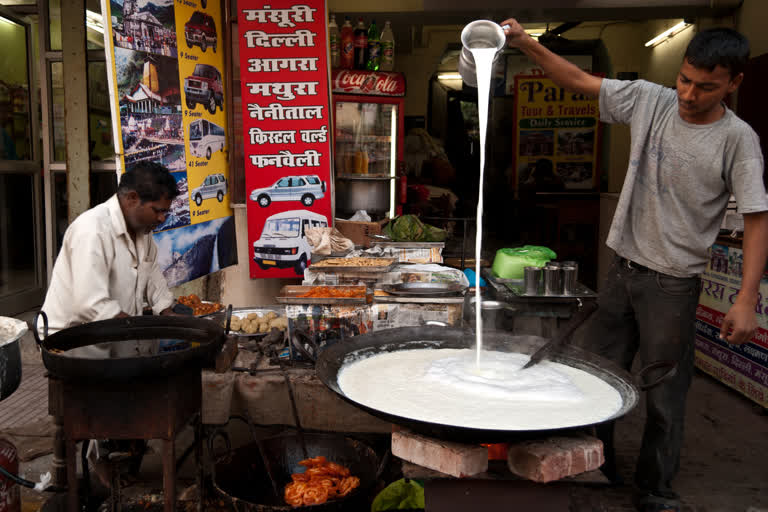New Delhi:Regulator Food Safety and Standards Authority of India (FSSAI) has intensified the surveillance on milk products like khoya and ghee to curb adulteration in 'mithai' during the festival season in Delhi-NCR, its CEO Pawan Agarwal said on Friday.
The FSSAI also released a guidance note on traditional milk products to help food business operators to ensure basic hygiene and sanitation in the manufacturing of milk products particularly sweets.
The manufacturing and trading of traditional dairy products like paneer-based sweets are largely confined to Halwais in India. Such dairy products are more susceptible to adulteration during festival season particularly due to mismatch in demand and supply, the regulator said.
"We have started a surveillance exercise on milk products during the festival season in Delhi-NCR. 44 locations have been identified and samples are being collected and sent to our national lab at Ghaziabad," Agarwal told reporters while releasing the milk survey.
The samples will be tested until November 3 and the results will be announced in the first week of next month.
"The purpose of this exercise is to know adulteration in milk products and what kind of contaminants are present. The micro-biological analysis will also be done," Agarwal said.
Read more:Passenger vehicle retail sales fall 20% in September: FADA
In the guidance note released for food business operations, the FSSAI has suggested ways to ensure shelf-life of sweets, check the quality by looking at the texture and flavour, besides providing consumer tips to test adulterants.
On shelf-life of sweets, the regulator has said 'kalakand and its variants' should be kept at room temperature and consumed on the same day, while 'ladoo and khoya sweets' can be consumed within 4 days and 'sweets with ghee and dry fruits' to be consumed within 7 days of the manufacturing.
The FSSAI has provided simple methods for consumers to check adulterant blotting paper used in 'rabri' and coal tar dyes in ghee, cottage cheese and milk powder, while mashed potatoes and other starches used in ghee.
FSSAI has also said in a study that not only raw milk but even processed milk, including that of major brands, have failed to meet the prescribed quality norm in 37.7 per cent of the total samples tested.
In safety parameters too, 10.4 per cent of the processed milk samples were non-compliant, much higher than 4.8 per cent in raw milk.
Adulteration was found in only 12 of the total samples surveyed with maximum reported in Telangana, followed by Madhya Pradesh and Kerala, the study said.
To check this, the regulator has directed the organised dairy sector to strictly complying with the quality norms and put in place 'testing and inspection' at entire value chain by January 1, 2020, he added.
The FSSAI study collected total 6,432 milk samples from 1,103 towns and cities between May and October 2018 in all states and union territories. The milk samples were collected from both the organised and unorganised sectors.
